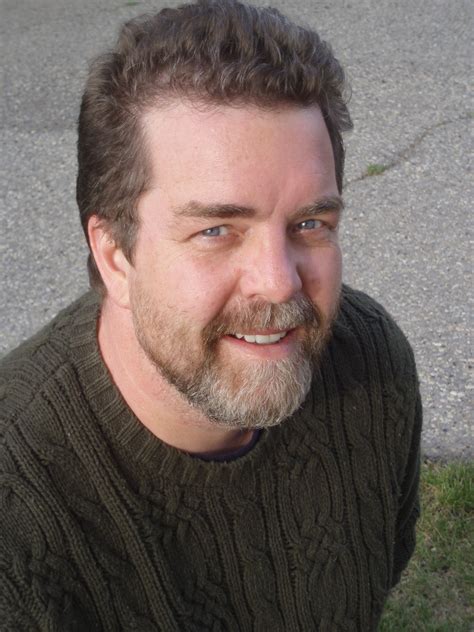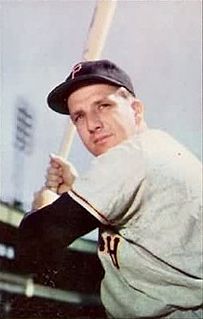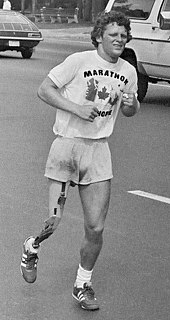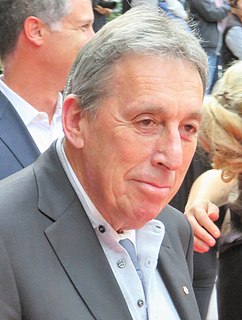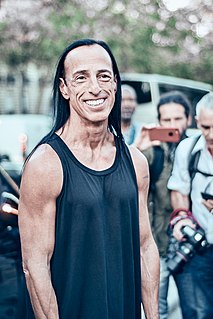A Quote by Will Ferguson
I read and learned and fretted more about Canada after I left than I ever did while I was home. I absorbed anything I could on topics that ranged from Folklore to history to political mainifestos... I ranted and raved and seethed about things beyond my control. In short I acted like a Canadian.
Related Quotes
It's really hard to teach me anything. I can't read music. I never learned how to read music. I read books about things and try to learn - I don't like to learn from anybody. Later on I would, once I'd get the hang of things. Like I ride horses, I'm good at that, Western riding. I learned all about it reading and studying. I'm always learning about horses, I like that.
[Judge and Jury] is outstanding. I have
learned more about the history of
baseball, true history, than from
anything I have ever read or heard
about. [It's] research and documentation
clarifies so many of the personalities
and events that took place before 'my
time' in the game. Jacques Barzun's
quote: 'Whoever would know the heart
and mind of America had better learn
baseball' should be supplanted by [this]
biography of Landis.
The Canadian Identity, it seems, is truly elusive only at home. Beyond the borders Canadians know exactly who they are, within they see themselves as part of a family, a street, a neighbourhood, a community, a province , a region, and on special occasions like Canada Day and Grey Cup weekend and, of course, during the Winter Olympics, a country called Canada. Beyond the borders, they pine; within the borders, they more often whine
Adrian suddenly glanced up at me. Our gazes locked, and I felt like he could read my mind. How often did he think about that kiss? And if he really was crazy about me, did he imagine more than just kissing? Did he fantasize about me? What kinds of things did he think about? His lips on my neck? His hand on my leg? And was that leg bare . . . ?
What experience and history teach is this - that nations and governments have never learned anything from history, or acted on any lessons they might have drawn from it. Variant: What experience and history teach is this - that people and governments never have learned anything from history, or acted on principles deduced from it.
I did not know much history when I became a bombardier in the U.S. Air Force in World War II. Only after the War did I see that we, like the Nazis, had committed atrocities... Hiroshima, Nagasaki, Dresden, my own bombing missions. And when I studied history after the War, I learned from reading on my own, not from my university classes, about the history of U.S. expansion and imperialism.
There's been an amazing backlash for the last decade in America: political correctness. In many ways, I think that, while we've been remarkably violent in our media, there's been a real schizophrenia. In private, on the Internet, and on public-affairs shows or talk radio, we're way more explicit than we've ever been. But traditional Hollywood has been much more frightened than it ever was in the '70s about presenting things that could be perceived as politically incorrect.
There are certain things that I'll hear about and that I think will make a great book and I put it in a file. Sometimes it's a situation that interests me, and I don't even realize what I'm trying to say about it until I get closer to it. Sometimes the book after that I've written 125 pages of, and I can tell you what the book is after that. I just sort of have a linear progression, but more than anything, the topics land in your lap. I don't feel that I go out searching for them.
I like things pretty reduced. I don't understand how people live with so much stuff around them, because you can't focus on it, and after a while it ends up becoming absorbed. It's not as if anything's really being appreciated. To me all that stuff is some desperate message to everyone about who you are, like bumper stickers.
I can no more explain why I like "natural history" than why I like California canned peaches; nor why I do not care for that enormous brand of natural history which deals with invertebrates any more than why I do not care for brandied peaches. All I can say is that almost as soon as I began to read at all I began to like to read about the natural history of beasts and birds and the more formidable or interesting reptiles and fishes.
